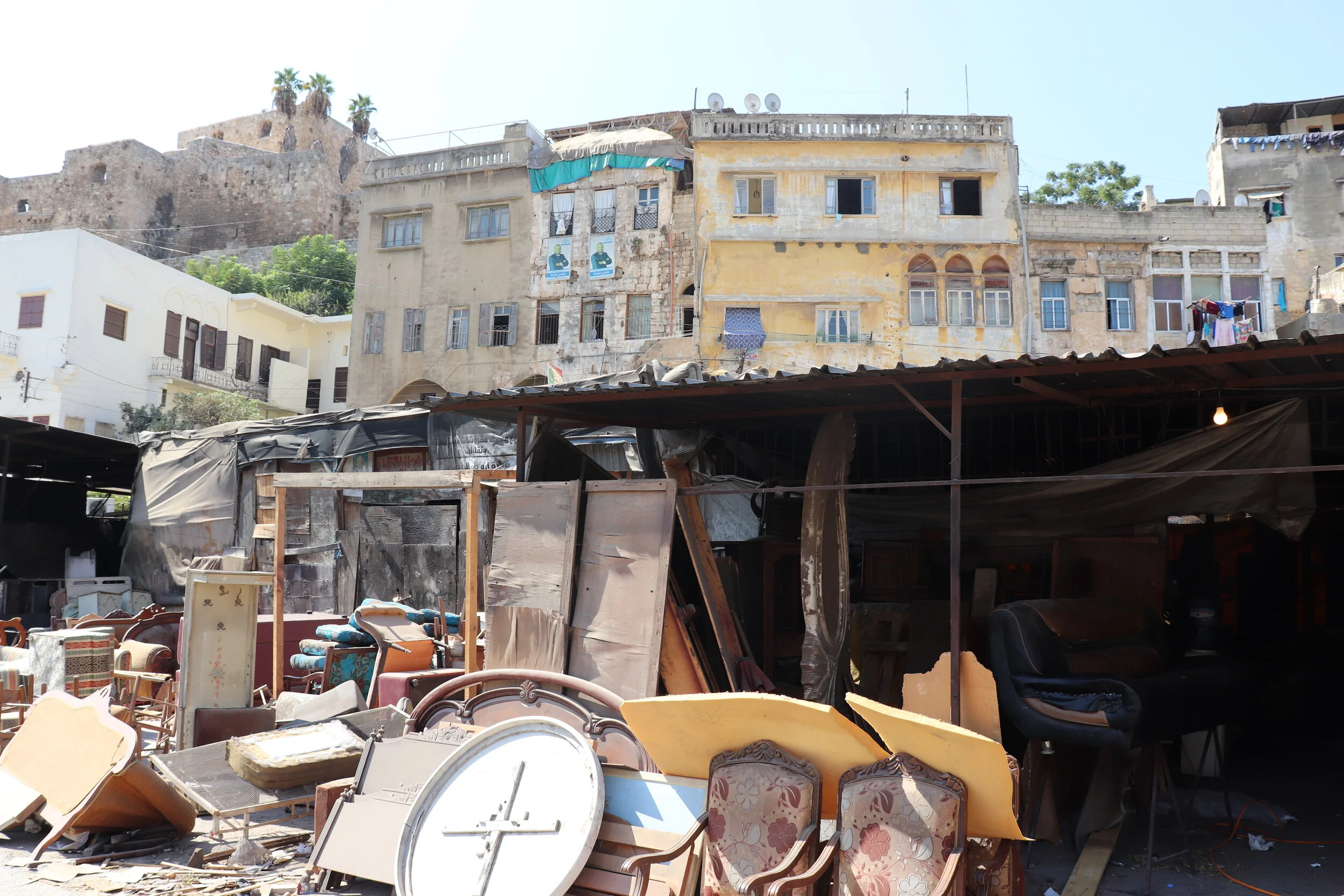Prosperity in the age of mass displacement
PROCOL Lebanon aims to speed up transitions to sustainable, prosperous societies in the context of mass displacement, to improve the quality of people’s lives.
Our research and learning is focused on inclusive growth and prosperity. It is about the prosperity of Lebanon in particular, but is also part of a larger agenda for developing sustainable ways to improve the quality of life of people throughout the world.
PROCOL Lebanon brings Lebanese and UK institutions and expertise together to address this challenge using cutting-edge research and innovation.
What is prosperity?
Prosperity is about more than income or wealth of GDP growth. When we talk about prosperity we take into account the multiple dimensions of people's lives. These include personal dimensions such as health, education, and a sense of community belonging, as well as external or environmental factors such as high-quality public services, safe and health urban environments, and the availability of good jobs.
In the context of Lebanon, developing an agenda of prosperity is particularly urgent because of the pressures that the country is facing as a result of the ongoing refugee crisis. Addressing these challenges through the lens of prosperity increases the potential of future economic development and growth in Lebanon.
Collaborating with local communities
With local communities, we explore how promoting economic growth can improve people’s quality of life. Community researchers will design metrics for, and measure, the prosperity of their local areas and how it changes over time. We will work with new learning technologies to enhance the educational and skills of more people living in Lebanon, in the fields of sustainable design, post-conflict urban regeneration, and education.
PROCOL Lebanon also examines how Syrian refugees and their host Lebanese communities can design more resilient and better quality living environments. It looks at how new technologies can be used to deliver affordable education to both refugees and Lebanese citizens, equipping them with the skills and capacities for managing conflict, and improving their environments and well-being. In addition, we will conduct research into how Syrian cities, institutions and communities can be rebuilt and strengthened once the current conflict is over.
CONTEXT
There are 65.6 million forcibly displaced people in the world (UNHCR, 2017). This means that 1 in every 122 people on the planet is now either a refugee, internally displaced or seeking asylum (UNHCR, 2014). Given the magnitude of displacement today, movement can no longer be considered an anomaly. It has become the "new normal" around the globe, whether people are "hosts" or "movers".
Low and middle income countries host 86% of the world's refugees. Lebanon hosts the most refugees in relation to its population, with 183 refugees per 1,000 inhabitants (UNHCR, 2016). This presents challenges to its economy, local infrastructure, and education system.
There is growing evidence that inequality is harmful to individuals and societies. Prosperity is negatively affected by poor educational opportunities, health, social cohesion, and employment prospects (OECD, 2015; Legatum Institute, 2015). Many countries do not have systems that can spread the benefits of prosperity more evenly across their societies, a problem that is only aggravated by mass displacement.
By contrast, social and economic inclusion are strongly associated with more sustainable, prosperous lives. Achieving inclusive growth involves looking beyond monetary indicators and GDP, to quality of life and well-being. Steps towards greater inclusiveness in sectors including education, innovation, entrepreneurship, infrastructure, public services, public policies and health and well-being can therefore address the detrimental impacts of inequality.
The scale, and sometimes protracted nature of displacement crises, requires new sustainable approaches that go beyond the once dominant model of humanitarian relief. These interventions are needed quickly, as competition over resources grows in some areas of the world. To be effective, they would need to create a 'level playing field' based on social and economic inclusiveness for "hosts" and "refugees". It follows that then interventions addressing challenges brought about by mass displacement include equipping populations with the skills and education needed to strengthen their economic, physical, governmental, social, political and environmental structures.








![IGP Logo-Short[1].png](https://images.squarespace-cdn.com/content/v1/5d89ee82afad6b391d45c37d/1570461394471-QL9WFE9VSFNCX59WRIA6/IGP+Logo-Short%5B1%5D.png)
